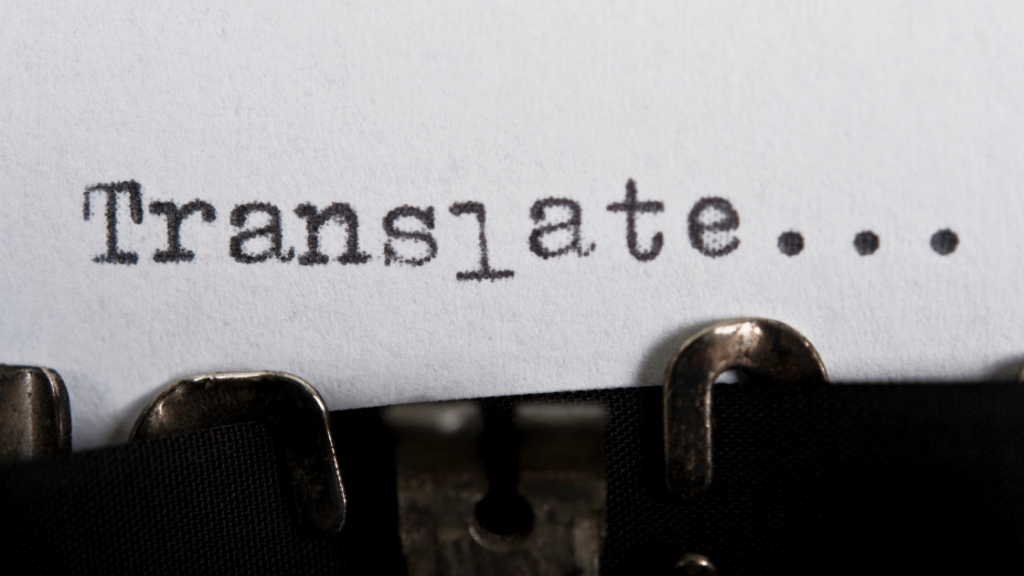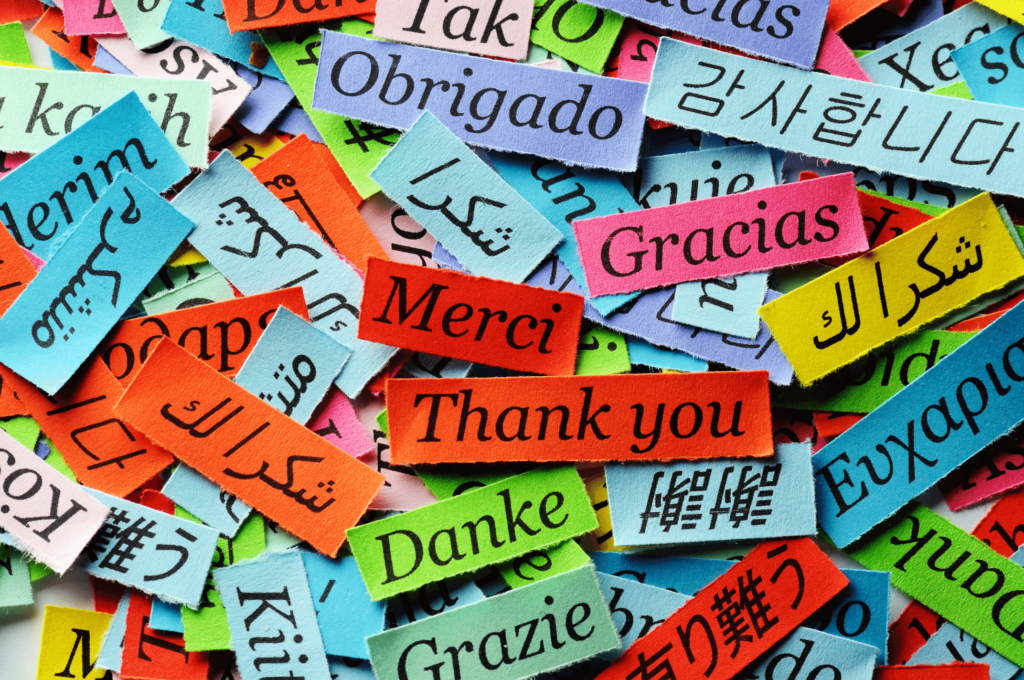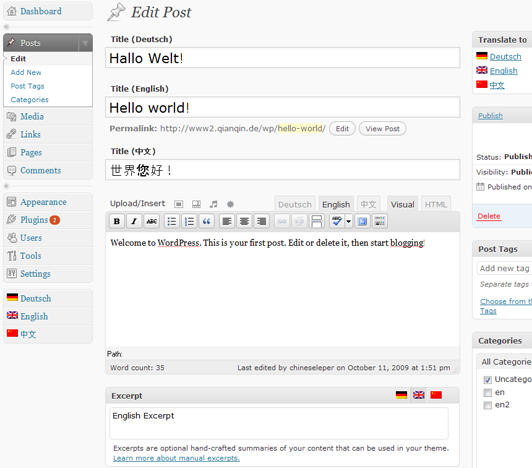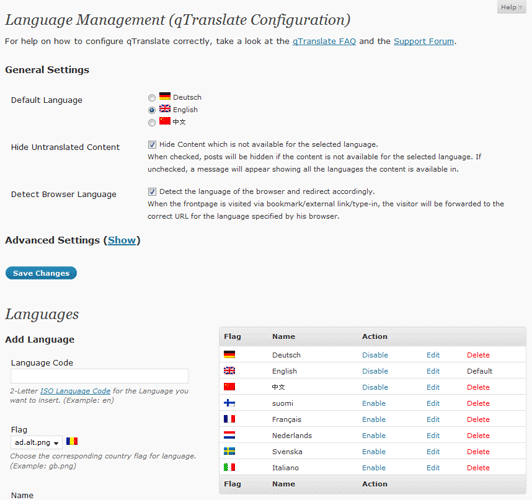Valentine’s Day Reading: Fall in Love with Translated Fiction
If someone were to ask you to name the most perfect novel to read on Valentine’s Day, what would your answer be?
Perhaps your first thought would be Jane Austen’s Pride and Prejudice. After all, it is a truth universally acknowledged that no one can resist Austen’s witty and sardonic prose. Maybe your thoughts would travel across the pond and land upon Nicholas Sparks’ The Notebook. Every great love starts with a great story and with a story such as Allie and Noah’s, it’s hard not to fall in love with this classic.
But have you ever thought about the other love stories that exist? The stories that centre upon the Señor, rather than the Mr Darcy, or those that follow the Mademoiselle, rather than the Miss Bennett?
With approximately 7000 languages in the world, there are a multitude of happily ever afters waiting to be read. In this blog, we at Web-Translations are going to help you explore those happily ever afters as we present you with our top five translated romance novels from across the globe.

So, are you ready to fall in love with translated fiction? … Well then, let’s begin!
Sensei no kaban (Strange Weather in Tokyo) by Hiromi Kawakami – Translated from the Japanese by Allison Markin Powell.
Our first choice of Valentine’s Day reading is Sensei no kaban. Uncluttered, dreamlike and enchanting, Strange Weather in Tokyo is the perfect novel for you to embark on your voyage into translated fiction.
Centring upon a young woman in her thirties and her blossoming yet hesitant relationship with her former schoolteacher, Kawakami’s novel is a tale of modern Japan and old-fashioned romance. It realises a balancing act between the lost Japan of the old and the modern, fast-paced Japan of today.
Furthermore, whilst the protagonists’ stories are universal, it is culturally embedded within Japan. From cherry blossom parties to drinking hot sake, the translated novel is intrinsically faithful to its source culture.
The novel states that ‘being in love makes people uncertain’. True as that may be, you are guaranteed to have one certainty after falling in love with this novel: Kawakami’s writing is pure brilliance.
La Belle et La Bete (Beauty and the Beast) by Gabrielle-Suzanne Barbot de Villeneuve.
As a tale as old as time, it’s not hard to recognise this French classic. Nonetheless, what you may not be as familiar with are the translated origins of the tale. Although immortalised by Walt Disney’s 1991 filmic adaptation, the French novel was first published in 1740 in La Jeune Américaine et les contes marins. It was then translated into English in 1757.
Although devoid of talking crockery and stirring musical numbers, Villeneuve’s tale is as magical as Walt Disney’s later adaptation. After all, with a moral celebrating the triumph of inner beauty over superficial entities, it’s hard not to become a thoroughly enamoured guest in the magical realist world.
El amor en los tiempos del cólera (Love in the Time of Cholera) by Gabriel García Márquez – Translated from the Spanish by Edith Grossman.
Our third choice of Valentine’s Day reading is El amor en los tiempos del cólera. First published in 1985, it is a Colombian novel written by the Nobel prize winning author Gabriel García Márquez.
Exploring the enduring power of true love, this Colombian classic centres upon the lives of two protagonists: Florentino and Fermina. Falling in love in their youth, the two write letters to each other as they embark upon a secret relationship. However, due to the complexities of familial relations and expectations, Fermina eventually marries another. Despite whiling away the years in 622 affairs, Florentino reserves his heart for Fermina.
With subject matter a touch heavier than the previous two novels on our list, it might not be the best book to start your journey into translated fiction. Nonetheless, Love in the Time of Cholera is certainly a novel that you should at least dip your toe into. After all, how can you not be swept away by quotations such as:
‘The only regret I will have in dying is if it is not for love’.
Le Livre de Perle (The Book of Pearl) by Timothee De Fombelle – Translated from the French by Sarah Ardizzone and Sam Gordon.
Our fourth recommendation for some Valentine’s Day reading is a YA novel, and it is quite simply stunning. Exuding romance, history and adventure, Le Livre de Perle will captivate you in a timeless fairy-tale of eternal love.
The story centres upon Joshua Pearl, a protagonist who comes from a world different to ours – a world of fairy tale. Despite knowing that the love of his life waits for him in such a magical realm, Joshua is trapped in our own world on the eve of the Second World War. What is more, as his memory fades, Joshua must piece together his past and find his way home.
The novel states that ‘happiness is a dance where each steps brings you closer together or farther apart’. Reading this novel will certainly be a step that takes you towards that happiness.

대도시의 사랑법 (Love in the Big City) by Sang Young Park – Translated from the Korean by Anton Hur.
Fresh. Unique. Modern. These might perhaps be the best adjectives to describe our final recommendation of Valentine’s Day reading.
Depicting the messy riots of young life, Sang Young Park’s novel follows the life of our protagonist Young. Recounting both his rakish college years and his still carefree thirties as he drifts from boyfriends, jobs and friends, the novel explores the hardships of platonic, romantic and familial love.
Unashamedly messy, cruel and raw, the love depicted in Sang Young Park’s story is real. Because of that we love it … and so will you!
These are just five of our favourite translated love stories from across the globe. We’d love to hear your favourite books to read on Valentine’s Day! Please feel free to get in touch via our social media.
Feeling the love and fancy reading more translated fiction? Why not check out our other fiction in translation blogs?
Lifting the Lid on Translation and Interpreting
It is likely that you have heard of the terms ‘translation’ and ‘interpreting’. They are fairly common terms and are used frequently in everyday speech.
However, do you know that they actually refer to different services?
Yes, that’s correct. Despite the media often using them interchangeably, translation and interpreting are not the same thing.
It is true that both have the shared goal of conveying meaning from one language into another. However, there is a fundamental difference between them:
Translation involves written language, while interpretation involves spoken language.
Let’s take a closer look at some of the differences!

The Medium:
TRANSLATION is a written form which sees the translator convert a source text from one language into another language, usually their mother tongue.
INTERPRETATION is a spoken practice which sees the interpreter verbally convert a speaker’s message into another language, often working between their mother tongue and another language.
The Speed:
TRANSLATION is a practice in which the translator can work at their own pace, thinking carefully about each word before writing.
INTERPRETATION is a practice in which the interpreter must think imminently, often speaking at the same time as the speaker. Given the fast-pace nature of the practice, it is much more about paraphrasing than word-for-word conveyance. Short-term memory is essential.
The Specialism:
TRANSLATORS need to be specialists in the field they translate in, but they can always rely on dictionaries and search engines to help them find fiddly terms during the translation process.
INTERPRETERS need to be specialists in their field too, but they cannot rely on reference material when working. If they do not know the exact meaning of a term in their own language, they must think on their feet and describe or summarise the term.
The Location:
TRANSLATORS often work at home, using their computers and dictionaries as their only work tools.
INTERPRETERS are at the location of the event, either in specific booths like at the European Commission or perhaps stood behind the speaker, whispering the translation into their ear. Regardless of the medium, they attend the event live!
The Direction:
TRANSLATORS translate into their mother tongue from their second language.
INTERPRETERS may need to interpret from their second language into their mother tongue, and then interpret from their mother tongue into their second language. And yes – this is as difficult as it sounds!!!
We hope this blog can clear up any confusion once and for all. Get in touch via our contact page or social media if you have any comments or queries that you’d like to share!
Fancy learning more about the world of translation? Why not check out our blog lifting the lid on Proofreading?
Festive Phrases
It’s finally December, which can only mean one thing …… It’s CHRISTMAS!!!
Time to whip out your festive jumpers, gobble up all the mince pies and blast Michael Bublé on repeat!
As the many Christmas songs state, it’s the most wonderful time of the year, and we at Web-Translations wanted to help you spread that festive cheer by providing you with some festive phrases from all around the world.

Veselé Vánoce
Our first festive phrase is ‘Veselé Vánoce’ and it means ‘Merry Christmas’ in Czech.
Fun Fact: In the Czech Republic, one Christmas tradition is to take an apple and cut it lengthwise (in other words, the opposite way to usual). A symbol will appear in the middle of the apple and, if you’re going to be healthy next year, you will see a star. Alternatively, if there is a symbol of a cross, this suggests that you may have ill-health in the coming year.
God fortsättning
Our next festive phrase is ‘God fortsättning’ and it means ‘Good continuing’ in Swedish. Specifically, it is only used after Christmas.
Fun Fact: No Swedish Christmas is complete without the Lussekatt. This is a sweet wheat bun which tastes of saffron and it is often sprinkled with raisins. Furthermore, the bun is curled into an ‘S’ shape and it is delicious.
Meilleurs vœux
The third phrase on our list is ‘Meilleurs voeux’. This French phrase means ‘best wishes’ and it is usually followed by the year. For example, “Meilleurs voeux pour 2022!”
Fun Fact: The thirteen desserts of Christmas are a tradition in Provence. Yes, you heard correctly! Thirteen desserts!!! They eat these after a large supper and they represent Jesus and his twelve apostles at the Last Supper.
क्रिसमस की बधाई
Our fourth festive phrase is Hindi and it means ‘Merry Christmas’.
Fun Fact: In South India, one Christmas tradition is to put a burning earthen lamp on their roofs. It symbolises that Jesus is the light of the world.

Que se cumplan tus deseos/sueños
The next phrase on our list is Spanish. ‘Que se cumplan tus deseos’ translates to mean ‘I hope your dreams come true.’ Quite sweet isn’t it?
Fun Fact: In Catalonia, they hide an unusual figure among their nativity scenes. Called the ‘caganer’, this little figure depicts an individual with their trousers down, going to the toilet. It’s a little odd, but you can’t help but love a festive tradition!
Vi auguriamo, un Natale pieno di amore, pace e felicità
This is an Italian festive phrase which translates to mean ‘We wish you a Christmas filled with love, peace and happiness’. That’s to say, it’s the perfect greeting to show someone that you care.
Fun Fact: Did you know that in various Italian cities, it is common to see men playing bagpipes in the squares across town at Christmas time? They are called ‘zampognari’ and they dress as shepherds.
Zdrowych i radosnych Świąt Bożego Narodzenia oraz szczęśliwego Nowego Roku
The above phrase is Polish, and it means ‘We wish you a Merry Christmas and a Happy New Year.’
Fun Fact: Poland really loves Christmas carols. In fact, one even nearly became their national anthem!
Boas Festas
Our penultimate festive phrase is Portuguese, and it means ‘Happy Holidays’.
Fun Fact: The traditional Christmas meal in Portugal is called ‘Consoada’ and it is eaten on Christmas Eve. It consists of codfish, green vegetables and boiled potatoes. Moreover, it is normally followed by shellfish or perhaps wild meats.
Viel Glück und Erfolg im neuen Jahr!
Finally, our ninth festive phrase is German. It means ‘Good fortune and success in the New Year!’ – something that we are wishing all of our clients and suppliers this year!
Fun Fact: Christmas markets are very important in Germany. In fact, there are around 3000 markets each year!
These are just some of the many festive phrases out there, but we’d love to hear how you say Merry Christmas in your language! Get in touch via Twitter to spread the festive cheer.
Furthermore, if you’d like to read more about languages and translation, why not check out our blog exploring some of our favourite untranslatable phrases from across the globe?
Lifting the Lid on Proofreading
If you’ve ever had something translated, your translation company will most likely have explained their Proofreading and Quality Assurance procedures. That’s because QA is an integral stage of the translation process.
At Web-Translations, we ensure that all translations are proofread by a second linguist as standard. This is to ensure that we deliver translations of the highest quality.
But, what do we mean by top quality? And, why is it not sufficient to simply use one linguist?
Whilst our translators are experienced and specialised in their field, they are also human beings. Consequently, they sometimes make mistakes.
Although natural and few and far between, mishaps can have damaging consequences for your brand. A typo or a missing word may affect the trust that your customers have in you.
Proofreaders thus give you peace of mind because they catch these errors.

More than simply an editor – a proofreader also checks the accuracy of a translation
So, where do Project Managers fit in? And, what are Project Management QA Checks?
Most translation agencies offer in-house, Project Management QA Checks. These make use of advanced QA software and include procedures such as:
- Checking that the translator has translated everything
- Ensuring that the translator has edited all fuzzy matches
- Highlighting any inconsistent translations
- Identifying errors in punctuation, font or spacing
These checks are undeniably an essential part of the translation process, but there are limitations to what they can achieve. Although Project Managers are trained linguists, they are not proficient in all languages and are not experts in all specialisms.
We thus need proofreaders to look beyond the surface-level errors.
Nuances and readability in proofreading
Beyond providing basic grammar and formatting checks, proofreaders equally check the readability of your translation. As professional translators specialised in the text’s subject matter, second linguists are able to provide a second opinion. In other words, they ensure that the exact meaning of the source material is conveyed in your translation.
If the text doesn’t read as it should, appears clunky, or if there’s any alteration in meaning compared to the original, a proofreader will pick this up.
Proofreading thus makes the difference between a good translation and an EXCELLENT translation.
To find out more about our language solutions, read our services page here: https://www.web-translations.com/services/translations/ Or, if you’d like to talk to us directly, why don’t you fill in our contact form? We’re more than happy to help.
International Translation Day
It’s International Translation Day! The perfect opportunity to celebrate all things translation.
Although translation might just seem like the simple transfer of written content from one language to another (the ‘source language’ into the ‘target language’), translation can be quite an intricate process. For example, what do you do when the word in the source language doesn’t exist in the target language?
Maybe it’s a noun for a German object that doesn’t exist in the United Kingdom. Or maybe it’s a Spanish verb that refers to a quintessentially Spanish action!
To give you a taste of these words, we’ve collated some of our favourite untranslatable terms below …
1. Morriña
Morriña is a Galician noun which represents a feeling of nostalgia. But this isn’t simply any nostalgia, this is a nostalgia for the vibrant green hills and the deep blue sea: it’s nostalgia for Galicia itself.
Put simply, it’s used to describe that deep homesickness that the Galician people feel when they are away from their homeland. Quite poetic isn’t it?
2. Peiskos
Peiskos is a Norwegian noun that embodies the act of sitting in front of a fire and having a good time. It’s an ambient mood that embodies a warm and peaceful sort of calm.
If we were to break it down, we would see that ‘Peis’ means fireplace, and ‘kos’ can mean to have a good time, and to cuddle.
3. S’entendre
S’entendre is a French verb that describes getting along with someone because you think in the same way. It’s the perfect term to use if you and your best friend are on the exact same wavelength.
4. Pаспутица
Pаспутица is a Russian word that doesn’t have an English translation because it describes something that doesn’t exist in English. It refers to a season of bad roads. Specifically, it describes a period during Spring and Autumn where the weather is so bad that unpaved roads are practically impossible to drive on.
It comes from the root ‘путь’ which means ‘road’ and the prefix ‘pac’ which is similar to the English ‘dis’. You can see how a literal translation may cause confusion. ‘Disroad’ is pretty nonsensical.
5. Zugzwang
Zugzwang is a German noun which describes a situation in which you are obliged to make a strategic decision. Furthermore, this decision is likely to be quite stressful.
It was originally used to describe the feeling that chess players felt when trying to make a move. However, now it is used to simply refer to any decision that must be made.
As you can see, translation is no easy feat! That’s why it’s vital that you work with native, specialised and experienced linguists.
We at Web-Translations feel very lucky to work in an industry full of talented and creative individuals, and we just wanted to say thank you to all the amazing linguists who work with us. You are very much appreciated!
What are your favourite untranslatable words? Get in touch via Twitter to share your top picks!

Let’s celebrate #WorldKidLitMonth!
Time to whip out your party shoes as September is a big month in the translation community, hosting not merely International Translation Day and the European Day of Languages but also #WorldKidLitMonth!
As a team of passionate linguists, we wanted to honour #WorldKidLitMonth by sharing some of our favourite translated children’s stories. Whilst some are age-old classics, some are more recent publications that you may not have heard of. Have a look below; maybe there are a few you didn’t even know were translations!
Pippi Longstocking by Astrid Lindgren
This is a Swedish story originally published in 1945 as Pippi Langstrump. Although many translations now exist, it was first translated into English in 1954 by Edna Hurup and illustrated by Richard Kennedy.
Why should you read it?
The collection of three books centre upon the strongest girl in the world. She lives on the outskirts of a small Swedish town and shares her house with a monkey and a horse. Pippi is eccentric, tells lies and subverts the adult world in an utterly marvellous fashion. She is quite frankly a girl that all children should meet.
When is the best age to read it?
Between the ages of 5 and 9 (but to be honest, you’re never too old for a good adventure!)

The Rainbow Fish by Marcus Pfister
This international best-seller is a German story originally published in 1992 as Der Regenbogenfisch. It was translated into English by J. Alison James and soon became a modern classic, even being adapted into an animated television series.
Why should you read it?
Rainbow Fish teaches about the importance of sharing. Possessing scales that shimmer like the colours of the rainbow, Rainbow Fish is the most beautiful fish in the ocean. When asked to share his scales, however, Rainbow Fish refuses and keeps his scales to himself, ultimately making him very lonely. Although a simple message, it is one that is universal: sharing makes us happy.
When is the best age to read it?
Between 3 and 6 years.

The Little Prince by Antoine de Saint-Exupéry
This is a French story published in 1943 as Le Petit Prince. It is one of the most translated books in the world. Although it was first translated into English by Katherine Woods in 1943, many now read Richard Howard’s translation, a version that is perhaps less poetic but easier to read.
Why should you read it?
The Little Prince tells the story of a pilot who is stranded in the desert and on the edge of survival. He meets a young prince who has travelled from his home on a distant asteroid. As the only occupant on the asteroid, the little prince is neither a boy nor a man, yet he educates the pilot in extraordinary ways. It’s a timeless tale of childhood, imagination and the inevitability of growing up, and it is truly beautiful. How can you not fall in love with quotations like this…?
“And now here is my secret, a very simple secret: it is only with the heart that one can see rightly, what is essential is invisible to the eye.”
When is the best age to read it?
From the age of 6 and up.
The Day Saida Arrived by Susana Gómez Redondo
This is a contemporary Spanish story published in 2015 as El Día que Saída Llegó. It was translated by Lawrence Schimel in 2020 and it centres upon the friendship between two little girls: the first a Moroccan child who has recently migrated to Spain and the second a Spanish girl who searches for the words to help her friend feel welcome in her new home. Although they do not speak the same language, they forge a strong bond and learn about the wonders of the world around them.
Why should you read it?
It is a heart-warming story that offers an accessible introduction to talking about immigration. Not merely does it offer engaging and vivid illustrations crafted by Sonja Wimmer, but it includes English translations and pronunciations to Arabic words as well as an Arabic alphabet. The short yet beautiful story shows how bonds can be built beyond borders and the barriers imposed by language. It is a story of unity, love and acceptance, and it is a tale every child should hear.
When is the best age to read it?
Between 3 and 8 years.

Pinocchio by Carlo Collodi
Everyone has heard of Pinocchio, right? But did you know that, before it was a Disney animation, it was an Italian novel for children called Le avventure di Pinocchio. It was published in 1883, and inspired by a series called La storia di un burattino which appeared in an Italian weekly magazine for children called Giornale per i bambini. Nearly ten years after its publication, and two years after Collodi’s death, Pinocchio was first translated into English by Mary Alice Murray in 1892.
Why should you read it?
Although the novel is quite gruesome compared to Walt Disney’s adaptation, it remains a classic and, not including religious texts, it is one of the most translated books in the world. Telling the tale of a poor man named Geppetto who receives a piece of enchanted wood to carve himself a marionette, Pinocchio imparts some important traditional morals: disobedience does not pay off, you should not tell lies and those who care for their parents will be rewarded.
When is the best age to read it?
From the age of 7 and up.
These are just some of our favourites, but we’d love to know what your favourite translated stories are! Please get in touch via Twitter or our Contact Page to share your top reads and keep this discussion going. Also, be sure to stay up to date with all things #WorldKidLit by checking out their website.
Let’s get talking about #WorldKidLitMonth!
Microsoft’s Speech Translation is still all talk
At an event in China last month, Microsoft’s Rick Rashid unveiled a piece of technology that will likely attract a considerable amount of hype. In front of the company’s Asian 21st Century Computing gathering, the Chief Research Officer showed off speech recognition and automated spoken translation technology, his words being accurately transposed into Mandarin with his vocal tone synthetically carried through to the translated version. From the reaction of observers, the demonstration appeared a success, and the technology raises interesting questions about the possibilities, and the limitations, of automated translations.
Much has been made of the voice recognition and emulation side of Rashid’s translation, which is at best an optional enhancement, and in some cases would appear as undesirable excess. It’s exciting, for sure, that a computer can imitate a person’s vocal habits – but it’s not earth-shattering. On the other hand, the suggestion from some quarters that we are now capable, to some degree, of replacing interpretors with computers, is one worthy of serious intrigue.
The question we need to ask, though, is how this would ever be possible. You might pin me as naïve, and you’d be half-right, but language factually entails more than a series of algorithms. Consider the relationship between semantics and pragmatics; one concerns itself with somewhat strict meanings and definitions, while the other is wrapped up in the implicit nature of what we say, how we really use language. Which of these is more important? You could certainly argue that each requires the other to act as a balance, but it’s absolutely clear that the way we communicate has more about it than mere dictionary definitions and the frequency of a word in proximity to another.
It is common for us to assume that we can build machines capable of anything and everything, but the simple fact is that most of language is conducted on a very human level, in our instinct and the traits we share. For us to understand one another, we need to have a good idea of unspoken context, of the intricacies of a conversation, and of the peculiarity of much of our language. If a computer can do this at all, it cannot do it well. It cannot purposefully soften a verb to keep a diplomatic meeting from boiling over and it cannot understand the in-joke and explain it to a new audience. Those things exist in a different ball park to what we’re currently excited about; the art of professional translation is still as essential as ever.
qTranslate: The easy way to talk to everybody
For all our proclamations that the Internet has rendered geography null and void, it’s startling how many business opportunities are still missed because of language barriers. Though much progress has been made since the turn of the millennium in bringing global reach to a huge number of successful brands, many great organisations still don’t know how to even begin communicating with audiences abroad.
In this light, it’s a wonder that the fantastic qTranslate plug-in for WordPress has taken so long to flourish. Once activated, qTranslate transforms the control panel into an incredibly simple and reliable interface for making your site’s content multilingual. It organises your pages neatly and intelligently, and offers a user-friendly integration which is compatible with Search Engine Optimisation add-ons and a huge range of content types. In essence, qTranslate condenses the work involved in reaching foreign-language users down to an absolute walk in the park.
If you’re fluent in the second language you want to target, it’s as simple as opening that language’s tab in WordPress’ Post Editor and writing your new content – you can even change the layout of your posts based on the language in play. But if you’re not a native speaker, part of the beauty of qTranslate is how easy it makes getting what you’ve written translated by professionals at LiveTranslation. There’s an option to turn on the translation service, which allows you to pay for an affordable, professional translation, courtesy of Live Translation, with just a couple of clicks.
There’s no mess involved: you get your content, in a range of different languages, all housed on one site but still clearly distinct from both your users’ and a search engine’s perspective. It’s simple to install and even simpler to maintain.
When combined with the supplementary qTranslate with Slugs, what results is a multilingual WordPress control panel which is both intelligent and uncomplicated. It’ll translate your dates and times without being told, let you optimise your URLs for each individual language, and even give you multilingual menus. And if you’re missing a language that could help you crack a key market, you’re literally five clicks and no effort away from taking the first step across the border. Online, you can talk to everybody. Now, they’ll be able to understand you, too.
First Time Exporters: Full Support for your Website Translation
As the liberalisation of global commerce continues, more and more companies are joining the international market every year. Exporting has traditionally been seen as one of the most risky, and expensive ways to grow a business. While there are many pitfalls and challenges when trading internationally, the Internet offers an excellent way for you to reach out and grow your market share, without investing millions.
Global trade has never been so easy with the First time Exporters Guide. By working with Web-Translations you will have a partner to help you at every stage in your journey. We combine years of experience, with top-quality language and web skills to offer a hand-held, strategic approach to boosting your global trade.
(more…)
Olympic Gold Website Package – Fit for London 2012
Get Fit for London 2012 with the recently launched Olympic Gold Website Package by Web-Translations.
The 2012 London Olympics represents a great sales opportunity. As mentioned in the Getting Fit for the Olympics blog post published last week not everyone is capitalising on this sales opportunity. Do you want to go for Gold in the 2012 London Olympics?
Last year the largest ever campaign by a national tourist board was launched by VisitBritain; the £100 million GREAT Britain You’re Invited campaign. Primarily fronted by five major global celebrities who agreed to film TV ads and help promote Britain overseas.
As VisitBritain’s Mark Di-Toro says, “Now is the time to wave the British flag”. Thanks to the GREAT campaign a global audience of billions will have their eyes firmly set on Britain like never before. Will you be profiting from this interest?
Meet the Team – Fiona Henderson
I’m Fiona Henderson and I have just joined the Web-Translations team as a Project Coordinator.
I was born in Edinburgh and grew up in the nearby seaside town of North Berwick. After studying Russian and Slavonic Studies at the University of Glasgow, I moved to Leeds to study towards an MA in Applied Translation Studies at the University of Leeds.
I’m delighted to have found a position which allows me to engage with my knowledge of languages on a daily basis, whilst learning new skills and building on my experience in this exciting and constantly evolving industry.
Other facts about me: I am extremely musical and love going to the theatre to watch an opera or ballet, or to listen to some classical music. I am not very sporty but I do enjoy horse riding, ice skating and dancing. My dream is to take the Trans-Siberian Railway from Moscow to Vladivostok!
Meet the Team: Dominic McGrath
I’ve recently joined the Web-Translations team as a project coordinator. I am originally from Bradford but familiar with the local area and went on to University of Manchester where I graduated in 2009 with a BA in German and Business Management.
Since graduating I have worked in a couple of different industries – finance and logistics – but always with the view to these jobs being short-term. I have been on the lookout for a role that could essentially combine my knowledge of another language with my innate passion for business, and have found a perfect match with Web-Translations. I furthermore believe I have found somewhere with the right tools to enable me to develop and to launch a successful career.
I am highly driven to achieve goals and to deliver for our customers as the business looks set to grow and expand into new markets, and what’s more, I look forward to helping other businesses do exactly the same.
Outside work I’m passionate about sport, in particular football, and have never wavered in my support of a team going through dire straits at the moment. I also love to travel and experience different cultures and meet people from different nationalities. Building on the time I spent living in Frankfurt, I travelled around Central and South America during the summer of 2010, and am certainly keen to do more of this! I got to go on the recent trip to the dmexco event in Cologne with my new colleagues Lynn and Cassandra, and am looking forward to putting my skills and newfound knowledge into practise.
I look forward to the challenge the future holds.
In the mood for foreign films?
It’s a comment you may have heard expressed before by many native English speakers: despite possessing an interest in foreign films and a willingness to embrace their ‘quirkiness’, it sometimes feels as though you have to be “in the mood” to watch them. After watching a French film the other night and hearing my housemate make this exact comment, my thoughts consequently drifted to how world cinema seems to have rapidly gained popularity over the last ten years in the U.K. (more…)
Pre-translation preparations
There is a lot more to translation than meets the eye. Yes, the essence of the process is translating a piece of text from one language into another, but there is a lot more to consider than many people are aware.
There are lots of factors that need to be taken into account both before starting work, and during the translation process itself. Clarifying these points, and identifying any issues at the start helps to ensure a smooth translation process, and avoids delays while any difficulties are overcome.
Depending on the size and complexity of the project, clients should be asked several key questions, including (but not limited to):
What is the purpose/end use of the translation?
File formats – what format do they need the translation back in?
Processing text post-translation – will it be added to a Content Management System, or typeset into a design ready for print? If so, are those responsible experienced in doing so?
Reference material – could include previous translations and any background information to guide the translators. Clients who take the time to provide such information reap the benefits by getting an accurate translation that reflects their company style and is immediately fit for purpose. Without background information, the translators are often working in the dark, and it can take longer to produce text that is ready to use or publish.
Is there an in-country manager who will be reviewing the text, or who can help with any terminology queries?
Is the author of the document available to answer any queries about its contents?
Domain names are going global
Until last year, domain names could only be created using Latin characters a-z and numbers 1-9. This excluded accented characters and scripts such as Arabic, Chinese and Korean. In 2010, the use of non-Latin scripts in domain names was enabled, limited at first to the use of the country’s name in the official language.
Just how important is it to have domain names in various languages? We have previously discussed the importance of translating a website (obviously something we believe in!) in order to reach a wider audience, and surely domain names are an extension of that. Do Arabic speakers trust sites with domain names ending in .com or .co.uk? According to recent reports by the BBC, whilst some argue that domain names are becoming less important, given the ever-increasing popularity of social media networks such as Twitter and Facebook, others believe a good domain name is a sign of the importance and standing of a website. If potential visitors are discouraged from visiting a site that is only available in another language, surely the same applies to domain names? (more…)
Can we communicate solely through gestures?
To those who say communication is key in a successful relationship… Katie Price, aka English glamour model Jordan, has proved you wrong…
Just in case you are not up-to-date on Jordan’s latest romantic liaisons, she is currently dating an Argentinian named Leandro Penna. As reported in The Guardian, in a recent interview she gave, it conspired that the couple do not talk as they do not share a common language, and that actions do apparently speak louder than words. An example given by Leandro is that sometimes he will be sitting and moving his head, and Jordan will realise that he is looking for the remote control. She also commented that “In the car, I’ll think, I bet he wants his glasses, just before he asks for his glasses.” (This does raise the question: how does he ask for his glasses if he can’t speak English and she can’t speak Spanish?! In addition, if he can ask for them, why does it matter that she thought that’s what he was going to ask before he did so?!) (more…)
How important is it to translate a website?
In a recent poll, 90% of internet users in Europe would visit a site in their own language when given the choice. Meanwhile, 53% would still use a site if it was in English rather than their native language. However, despite this relatively high figure, these users would not necessarily be happy about the lack of information available in their own language, with 44% of respondents stating that they felt they did not necessarily receive all the facts when the website was only available in another language. (more…)
Translation and Tourism: getting multilingual ready for 2012
Looking at facts and figures relating to tourism in the United Kingdom can give us an insight into why people visit the country, what they look forward to the most, and why they would return. This is very important in the world of translation, in order to offer services to industries that would benefit the most from translating their websites, brochures and menus, to name but a few.
With the Olympics coming up next year, which will attract a huge number of multilingual tourists from all over the world, this is the perfect time to look at the statistics, and determine which areas of British culture are likely to attract visiting tourists. Companies within these fields could potentially reap huge rewards from offering details of their services in the right languages so that foreign tourists can understand what is on offer, and make the most of their trip to the UK. Not to mention that upon receiving a warm welcome, and being addressed in their own language, those tourists are more likely to think highly of our culture and country in general, and potentially more likely to recommend a visit, or even to return themselves. (more…)
"25 things translators should never do"
I recently read an interesting blog article citing “25 things translators should never do”. Whilst a company’s employees may have a contract or be given guidance by fellow employees or their boss, freelance translators trust their opinion, instinct, business acumen, or all of the above, in order to decide how to behave. This raises the question as to whether these ideas vary greatly between translators, whether there are any generally accepted rules, and how clients view different behaviour. (more…)
Mr Prawo Jazdy
You would think that, with all the resources they have at their disposal, the police in Ireland would be able to translate text in the blink of an eye, to ensure no embarrassing mistakes are made. It would seem, however, that such mistakes are not always avoided…
Back in 2007, police in Ireland took note of over 50 people with the name “Prawo Jazdy”. A popular name in Ireland? A common name among Poles who have emigrated to Ireland? Or, alternatively, the Polish translation of “driving licence”?
It is, of course, the latter. “Prawo Jazdy” was originally believe to be the name of one person who had repeatedly committed offences, until it became clear that the same name had been used on numerous occasions in order to refer to a number of different people. As a result, the police system contained over 50 people with the name “Prawo Jazdy”. Finally, upon investigating this seemingly unlikely occurrence, police discovered that this is actually the Polish for “driving licence”.
Whilst this mishap may have occurred a few years ago, it is a story that we can all learn a valuable lesson from – translation is vital!








